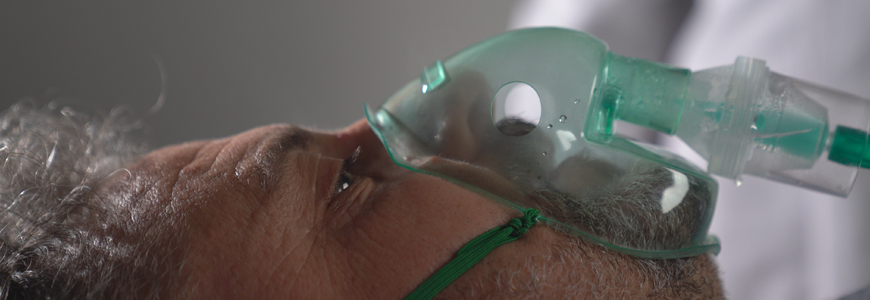Data from a COVID-19 biospecimen repository launched in April 2020 by Duke Pulmonary, Allergy and Critical Care Medicine has attracted interest from academic medical centers, scientific journals, and research projects.
One of the first coronavirus biobanks in North Carolina, the project has collected and processed specimens from more than 70 patients hospitalized in the MICU through February 2021. Blood, urine, and respiratory samples are among those collected over a three-week period from patients who have agreed to participate.
Duke pulmonologists and intensivists Bryan D. Kraft, MD and Lingye Chen, MD were preparing to launch a biorepository dedicated to MICU patients until the COVID-19 pandemic struck. With the emergence of SARS-CoV-2, they pivoted toward the COVID-19 biorepository. “The objective of a biorepository project before the pandemic was focused on providing data to analyze patients with acute lung injury,” Chen says. “When COVID-19 came along, it was logical to narrow the project to focus on the coronavirus.”
The coronavirus created a great deal of interest in the biobank, Kraft recalls. “The concept had great research potential, because so many of the Duke Health patients diagnosed with COVID-19 were referred to this unit,” he says. “The leadership of the medical school and the pulmonology division provided resources to launch it quickly.”
Kraft and Chen oversee the project, but praise key roles played by clinical research coordinators, nurses, respiratory therapists and lab technicians who identify patients that fit research parameters, obtain consent and process the samples.
Biobank research leads to new projects
Several Duke academic departments have launched projects based on the findings: The Pratt School of Engineering used samples to develop a test requiring a single drop of blood to identify antibodies specific to COVID-19; researchers in surgery and immunology are studying immune and coagulation responses; a laboratory in the Duke School of Medicine is analyzing the ways in which variants may contribute to kidney failure.
Kraft also highlights COVID-19 research initiatives underway in Duke labs that focus on biomolecular and tissue engineering as well as immunology. Bruce A. Sullenger, PhD, who specializes in RNA-based therapeutics, is examining samples at the Center for Biomolecular and Tissue Engineering. Smita K. Nair, PhD, a cellular immunologist, is focused on the immunological and inflammatory characteristics of the virus in her laboratory in the Duke Surgery Division.
“The pandemic has also brought groups together to collaborate that otherwise would not have been so well coordinated,” Kraft says. “For us, that meant working with both Bruce Sullenger’s and Smita Nair’s laboratories, both of which have provided expertise.”
In addition to interest within Duke, a privately held research firm has expressed interest in the data. Three universities — Rutgers, Emory, and Washington University — are interested in or are already using samples from the biobank, Kraft says. Additionally, grants are being written to launch studies based on the database.
“One of the most significant research benefits of having these samples is being able to review the data related to different outcomes — those who did well, those who survived but experienced complications, and those who did not survive,” Kraft says. Of patients enrolled in the biorepository, about 60% survived to 90 days from diagnosis of COVID-19.
Chen reports that data collection will continue. “There is no terminal point in terms of data collection,” she says. “The greater number of samples, the more powerful the data.”
